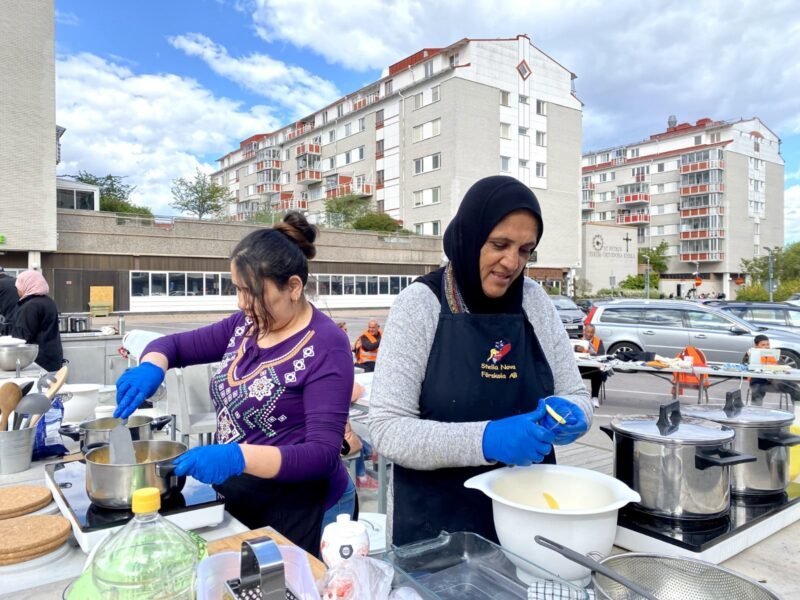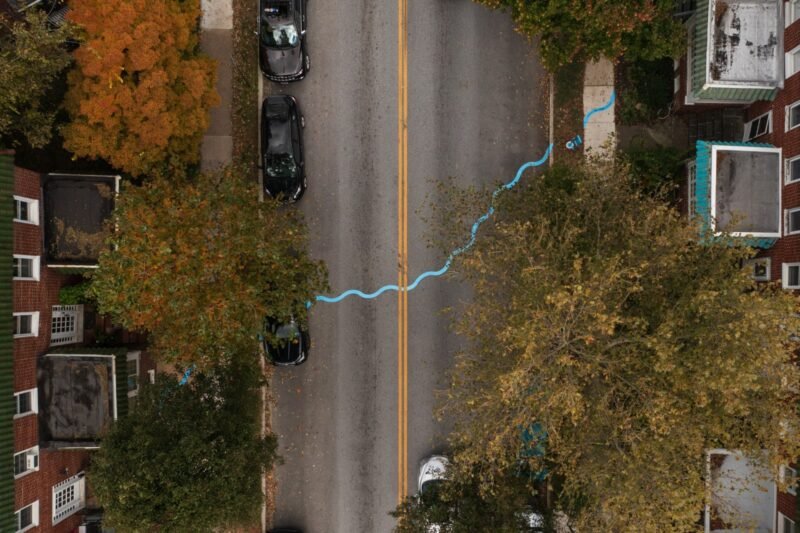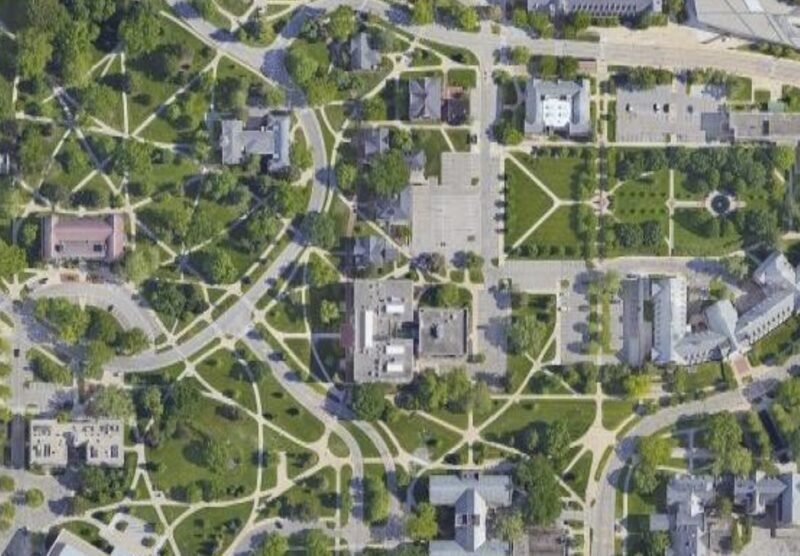Rotterdam Urbanists Invite High-Rise Neighbors To Come Out And Play
The public space around Rotterdam’s fancy high-rises is not always the most social space. Local movement Happy Streets closed off one of the city’s streets to cars and opened it up to the people.
Rotterdam isn’t your typical picture-perfect Dutch city of narrow canal houses and pretty gables. Rebuilt after the World War II, it looks much more like a North American city with bold, angular architecture, and shimmering skyscrapers. This is especially the case for the newly-built high-rise neighborhood, the Wilhelminapier. Look up and its skyline is awash with iconic constructions designed by A-list architects such as Álvaro Siza, Rem Koolhaas, Renzo Piano, and Francine Houben. At street level, however, it disappoints: a windy public space dominated by cars, featuring wide, characterless roads. But this is about to change.
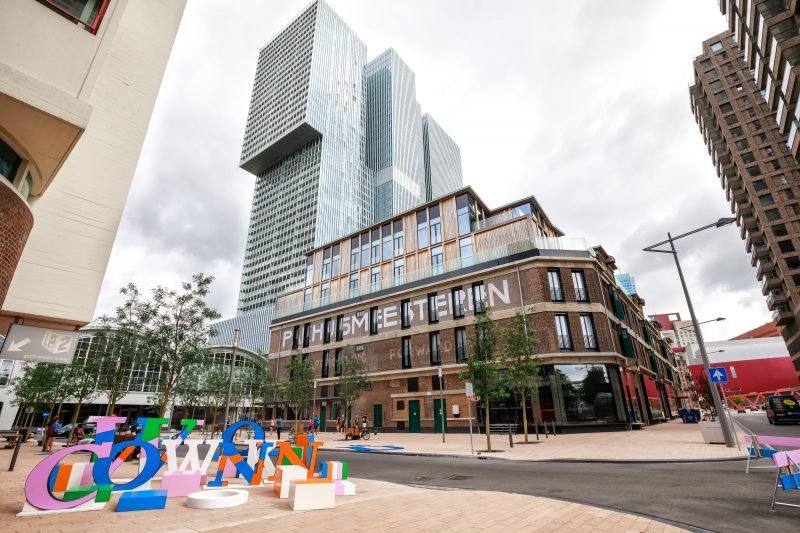
Last Saturday, the local movement Happy Streets closed off one of Rotterdam’s streets to cars and opened it up to the people. Together with art collective Opperclaes, they created an intervention called “Hęllø Yõù” — an invitation to all neighbors and visitors to come out and use the street differently. The result is a new, temporary public space full of life, in which people of all ages can gather to play, dance, eat, and meet one another. The goal is to help people reimagine the car-centric public space and the way they move in the city.
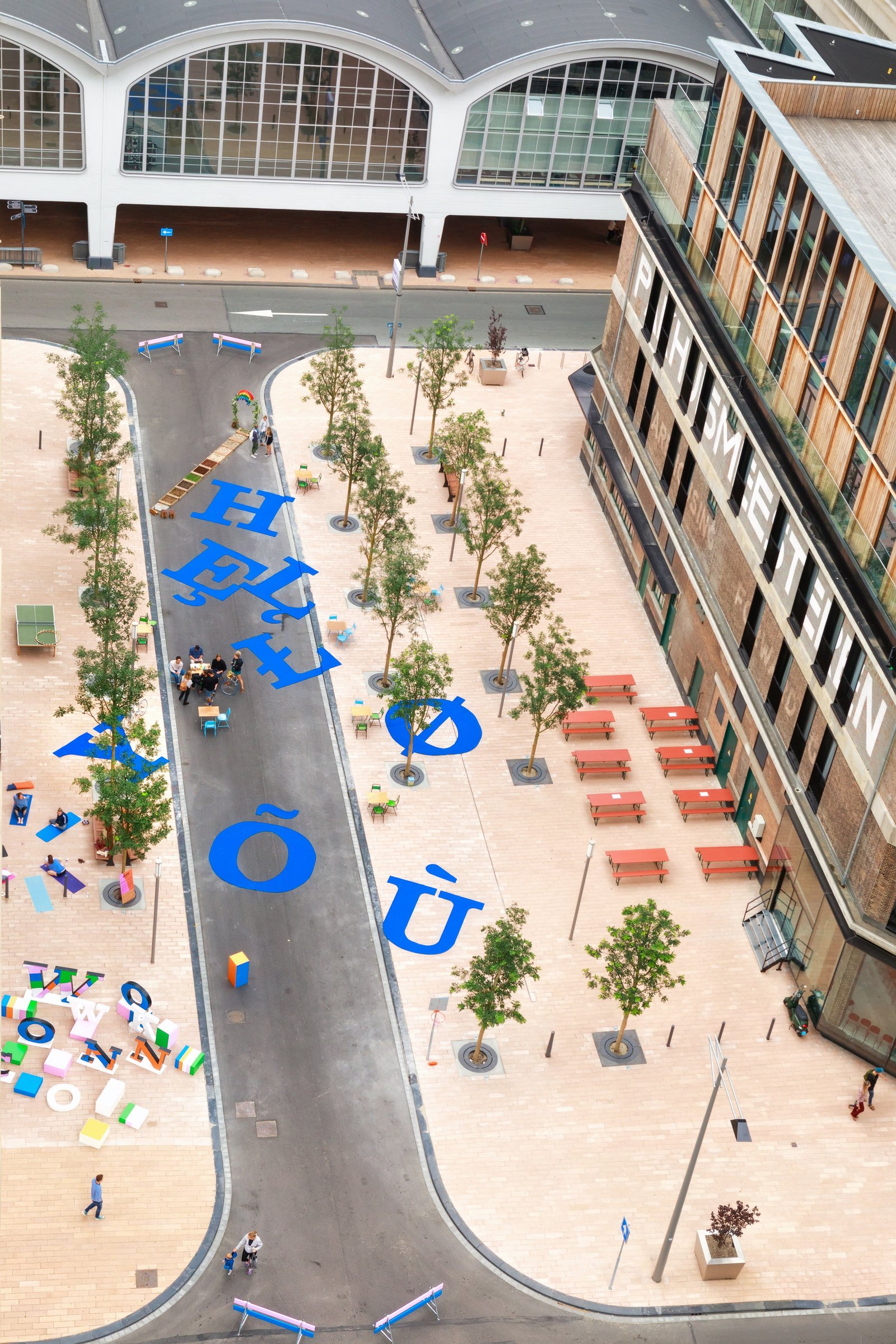
One of the highlights of the intervention is the Nature Path. Small wooden boxes filled with different types of soil are placed on the road, inviting people to walk on them barefoot. “It’s a very different sensation, being in the center and feeling among nature,” a mother of two, who lives in the neighbourhood, commented. “Usually we need to go to a big park far away, but now we have nature on our doorstep.”

Urban change collective Humankind took care of the creative strategy and planning. “It’s challenging for cities to help people imagine a different future. Using tactical urbanism and working with local artists is a fun and effective way to show the future today,” say Humankind’s founders Jorn Wemmenhove and Lior Steinberg. “Residents almost always want more green spaces, more places to meet, fewer speeding cars, and more space for cycling and walking. We make these possibilities visible to them.”
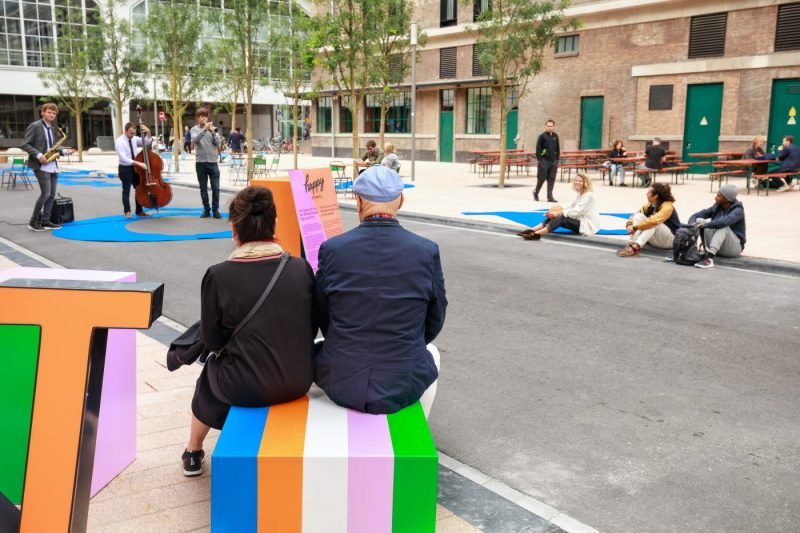
The project is part of Rotterdam’s ambitions to create more people-oriented places and accelerate the mobility transition. Happy Streets has been working with the municipality, residents and local businesses since the first Open Streets event in 2016 to suggest an alternative future for the city through co-created urban experiments. The organization wants to introduce residents to a different way of living — greener, healthier and more at a human pace.
Photos by Olha Rohulya, courtesy of Humankind
